I have two table which I would like to union. I need to keep only the duplicates from one of the two tables. I tried to find it, but could not find it anywhere. Hope somebody can help.
For example: Table_1:
| ID | Product | Amount |
|---|---|---|
| 1 | A | 10 |
| 2 | B | 10 |
| 3 | C | 10 |
Table_2:
| ID | Product | Amount |
|---|---|---|
| 3 | C | 9 |
| 4 | A | 100 |
| 5 | B | 100 |
Desired result:
| ID | Product | Amount |
|---|---|---|
| 1 | A | 10 |
| 2 | B | 10 |
| 3 | C | 9 |
| 4 | A | 100 |
| 5 | B | 100 |
So always use the duplicates from table_2. In this example ID 3 is duplicate, so use the duplicate of table_2 with amount 9.
How to realize this with T-SQL? I used the code below:
Select * from Table_1 where Table_1.id != Table_2.id
Union All
Select * from Table_2
But then I receive the error: 'The multi-part identifier "Table_2.ID" could not be bound.'
